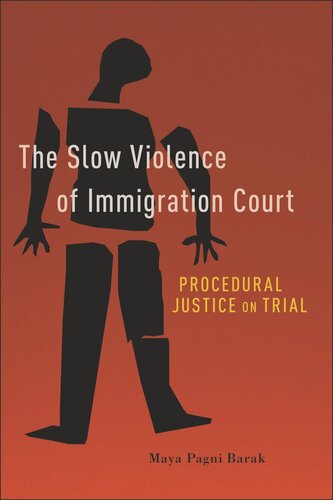

Most ebook files are in PDF format, so you can easily read them using various software such as Foxit Reader or directly on the Google Chrome browser.
Some ebook files are released by publishers in other formats such as .awz, .mobi, .epub, .fb2, etc. You may need to install specific software to read these formats on mobile/PC, such as Calibre.
Please read the tutorial at this link: https://ebookbell.com/faq
We offer FREE conversion to the popular formats you request; however, this may take some time. Therefore, right after payment, please email us, and we will try to provide the service as quickly as possible.
For some exceptional file formats or broken links (if any), please refrain from opening any disputes. Instead, email us first, and we will try to assist within a maximum of 6 hours.
EbookBell Team

0.0
0 reviewsThe arduous, confusing and fraught journey that immigrants take through immigration court
Each year, hundreds of thousands of migrants are moved through immigration court. With a national backlog surpassing one million cases, court hearings take years and most migrants will eventually be ordered deported. The Slow Violence of Immigration Court sheds light on the experiences of migrants from the “Northern Triangle” (Guatemala, Honduras, and El Salvador) as they navigate legal processes, deportation proceedings, immigration court, and the immigration system writ large.
Grounded in the illuminating stories of people facing deportation, the family members who support them, and the attorneys who defend them, The Slow Violence of Immigration Court invites readers to question matters of fairness and justice and the fear of living with the threat of deportation. Although the spectacle of violence created by family separation and deportation is perceived as extreme and unprecedented, these long legal proceedings are masked in the mundane and are often overlooked, ignored, and excused. In an urgent call to action, Maya Pagni Barak deftly demonstrates that deportation and family separation are not abhorrent anomalies, but are a routine, slow form of violence at the heart of the U.S. immigration system.